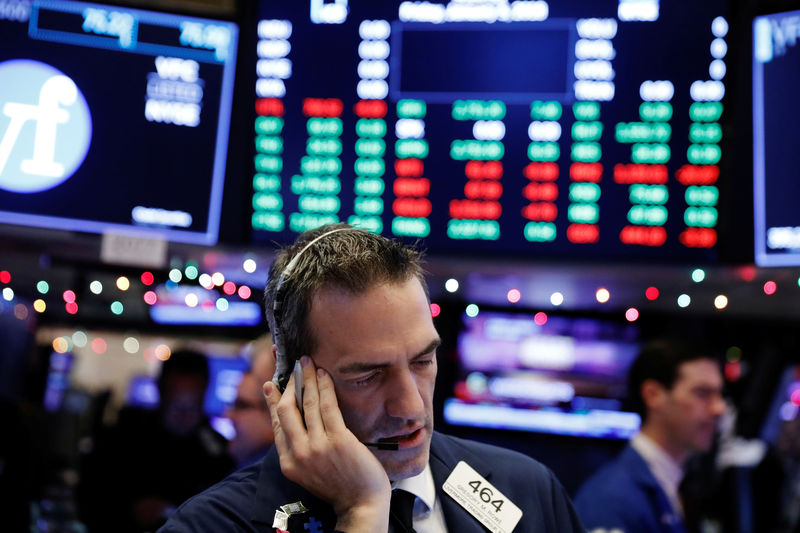This post was originally published on this site

Investing.com – The S&P 500 snapped a five-day winning streak on Tuesday, led by a drop in consumer discretionary stocks following weaker quarterly results from Home Depot and worries about the consumer amid data showing retail sales slipped to a two-month low.
The S&P 500 fell 0.7%, the Dow Jones Industrial Average slumped 0.8%, or 282 points, the NASDAQ Composite was down 0.9%.
Retail sales dropped 1.1% in July, more than the 0.3% decline expected, paced by a fall in spending on autos, building materials, and nonstore retailers.
“There are two caveats, however. Since April, there has been a consistent pattern of upward revisions to retail sales, so it’s possible that the momentum will improve with the next release,” Jefferies (NYSE:JEF) said in a note.
Cyclicals including industrials, materials, and consumer discretionary were in the red, with the latter down more than 2% amid pressure from retailers including Amazon (NASDAQ:AMZN), and Home Depot.
Home Depot (NYSE:HD) fell more than 4% after reporting weaker-than-expected second-quarter comparable same store sales that offset quarterly results that beat on both top and bottom lines.
“While big ticket demand continues to outpace supply in some categories, slowing demand in smaller-ticket categories is likely a leading indicator to slowing comp growth in the future, keeping us sidelined on HD,” Wedbush said in a note.
Walmart (NYSE:WMT) raised its full-year guidance after reporting better-than-expected second-quarter results. Its shares ended flat.
Investors will look to further reports from retailers including Target (NYSE:TGT), Lowe’s (NYSE:LOW), and TJX (NYSE:TJX), slated for Wednesday.
“Target reports tomorrow, and I expect them to report very good number that will easily exceed consensus expectations,” said Rhys Williams (NYSE:WMB), chief investment officer of the Opportunistic All Cap Equity Strategy at Spouting Rock Asset Management, said in an interview with Investing.com on Tuesday.
Technology stocks, meanwhile, struggled to replicate their positive start to the week, falling 0.9%, as megacap tech traded in the red.
Apple (NASDAQ:AAPL), Microsoft (NASDAQ:MSFT, Facebook (NASDAQ:FB), and Google-parent Alphabet (NASDAQ:GOOGL) were below the flatline.
Health care stocks shrugged off the broader market malaise, led by a 7% surge in Moderna (NASDAQ:MRNA).
The U.K. on Tuesday approved the use of the Moderna’s Covid-19 vaccine for 12- to 17-year-olds.
Other vaccine stocks including Pfizer (NYSE:PFE), and Novavax (NASDAQ:NVAX) were also higher on the day.
On the monetary policy front, Federal Reserve Chairman Jerome Powell largely stuck to his script in a town hall on Tuesday. Powell reiterated that the recovery in the labor market is far from complete and said that it wasn’t clear how a big an impact the Delta variant will have on the economy.
The Fed chief’s comments come ahead of the minutes from the Fed’s most recent meeting and the Jackson Hole symposium next week, when some expect there could be clearing signaling on tapering of monthly bond purchases.
Still, the Fed is likely to take a cautious approach rather than an aggressive approach to reducing its monthly bond purchases.
“If Powell does commit to a time on tapering at Jackson Hole, he could signal the end of the year or very beginning of next,” Williams said. “I think it’s going to be very slow, very deliberate and will be very market driven; if the market has taper tantrum, I think they’ll slow down.”

